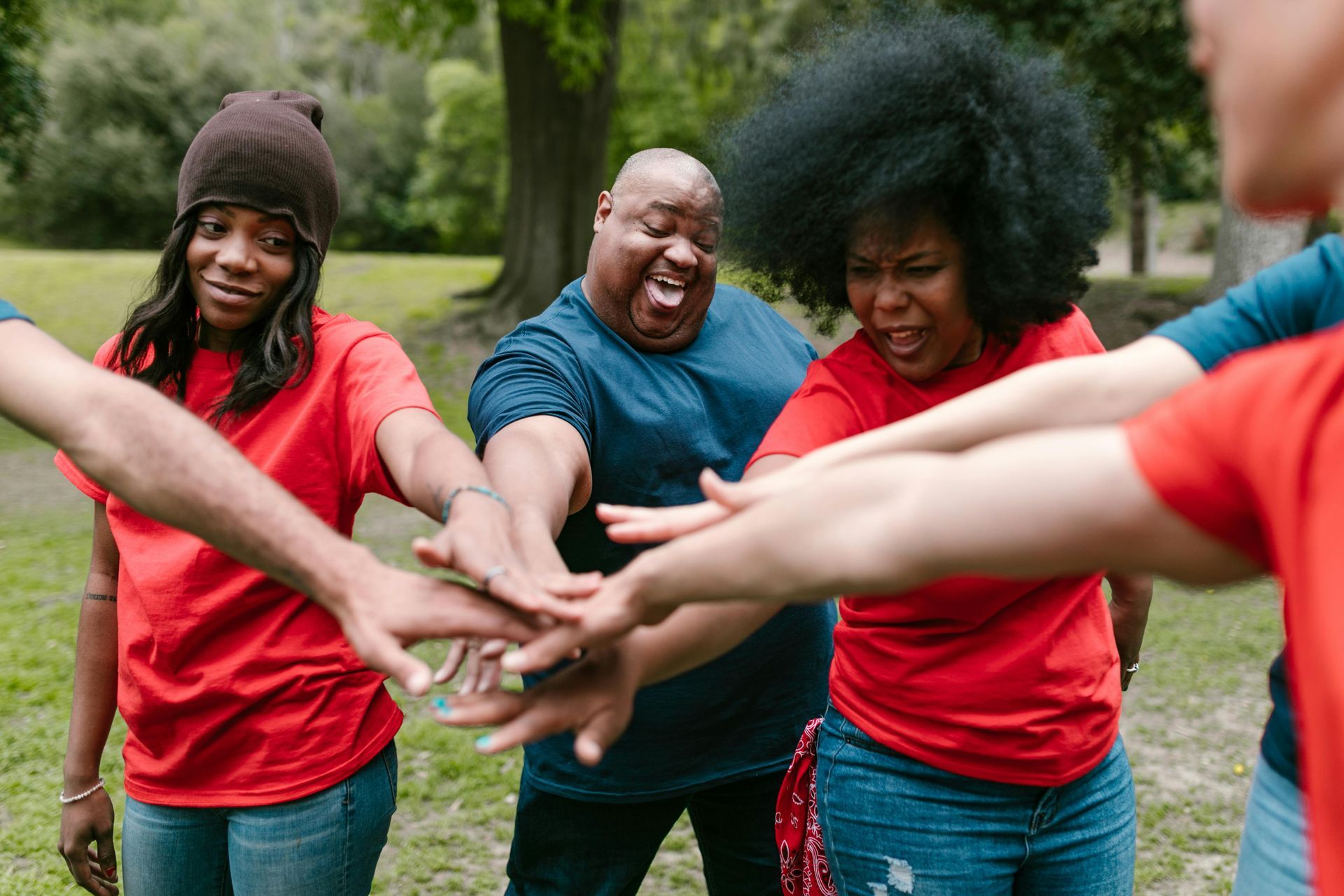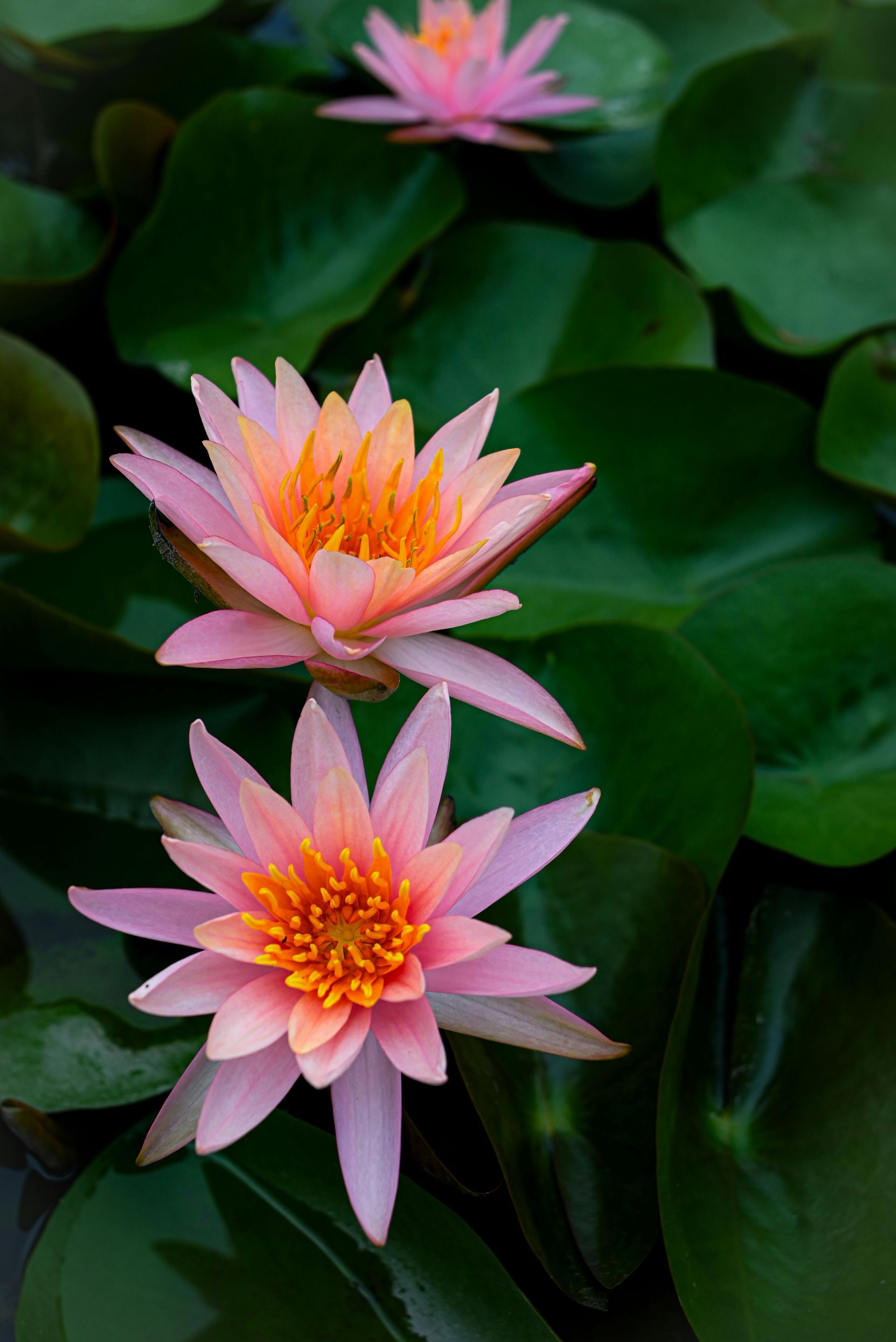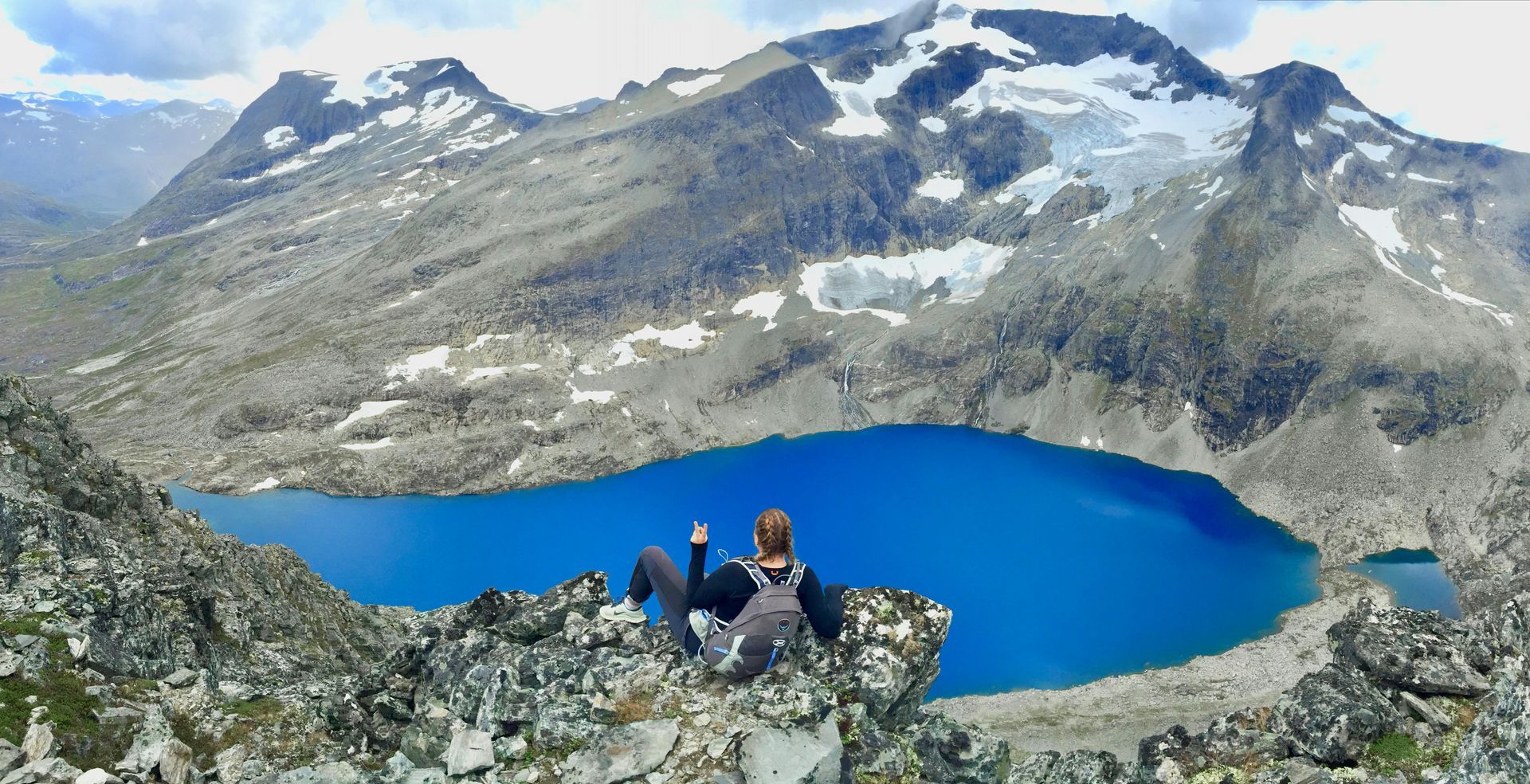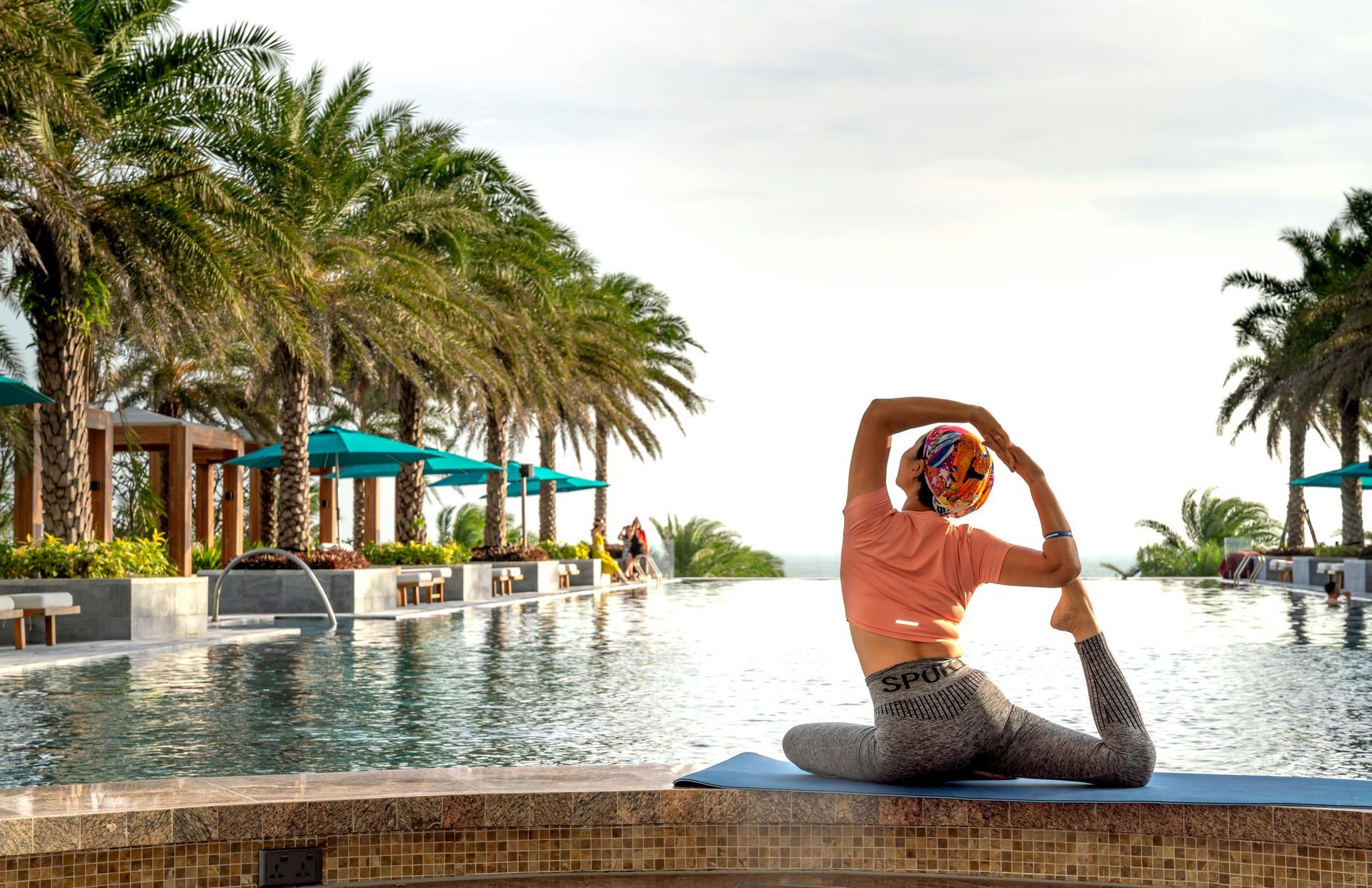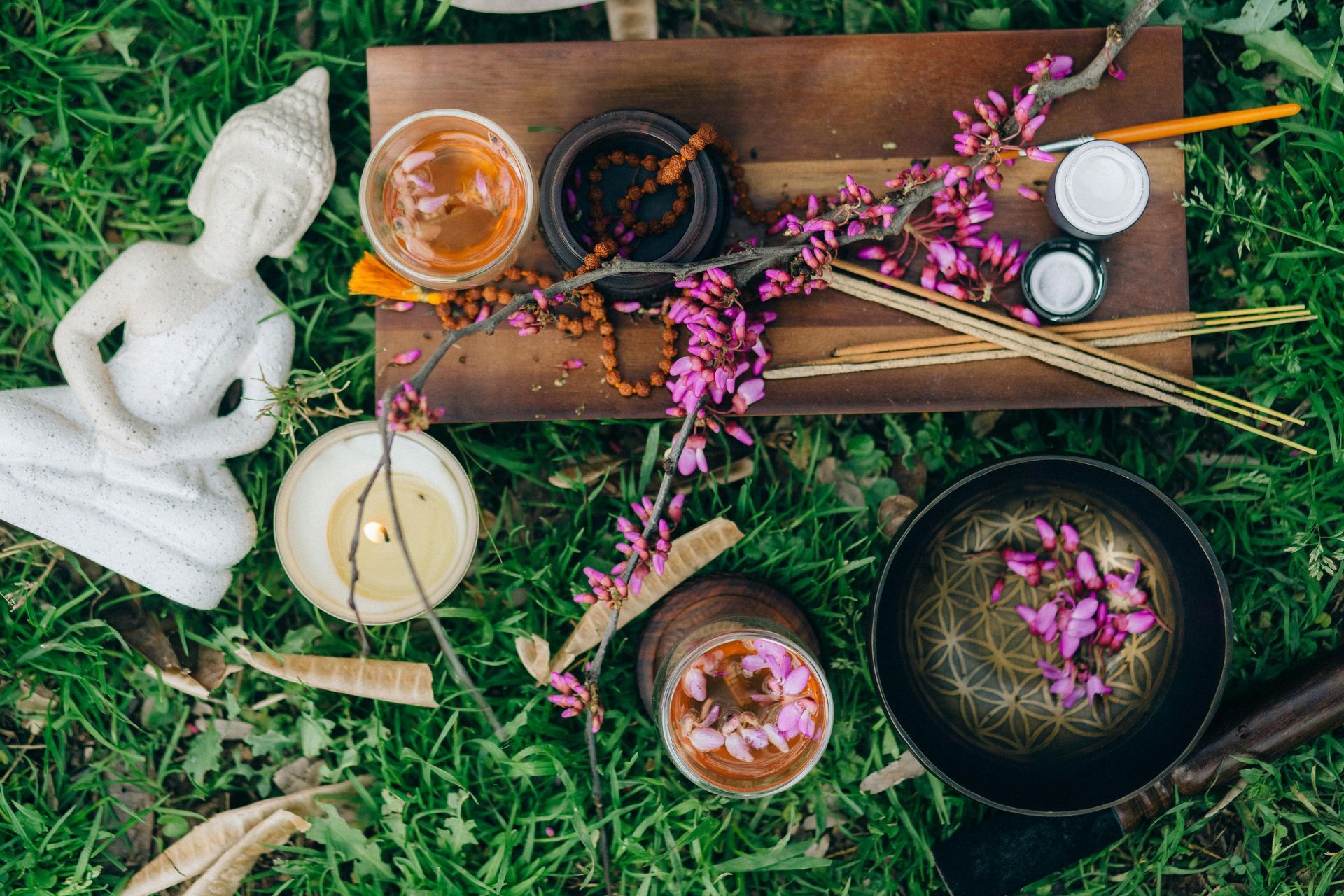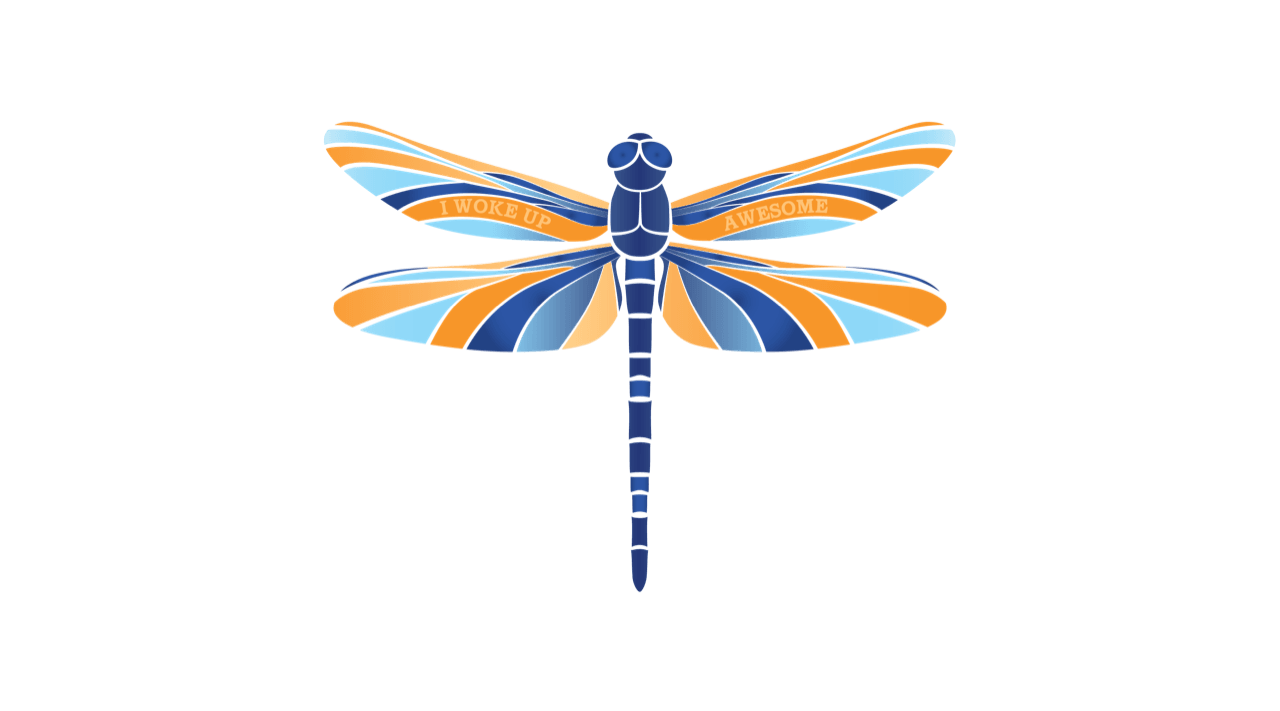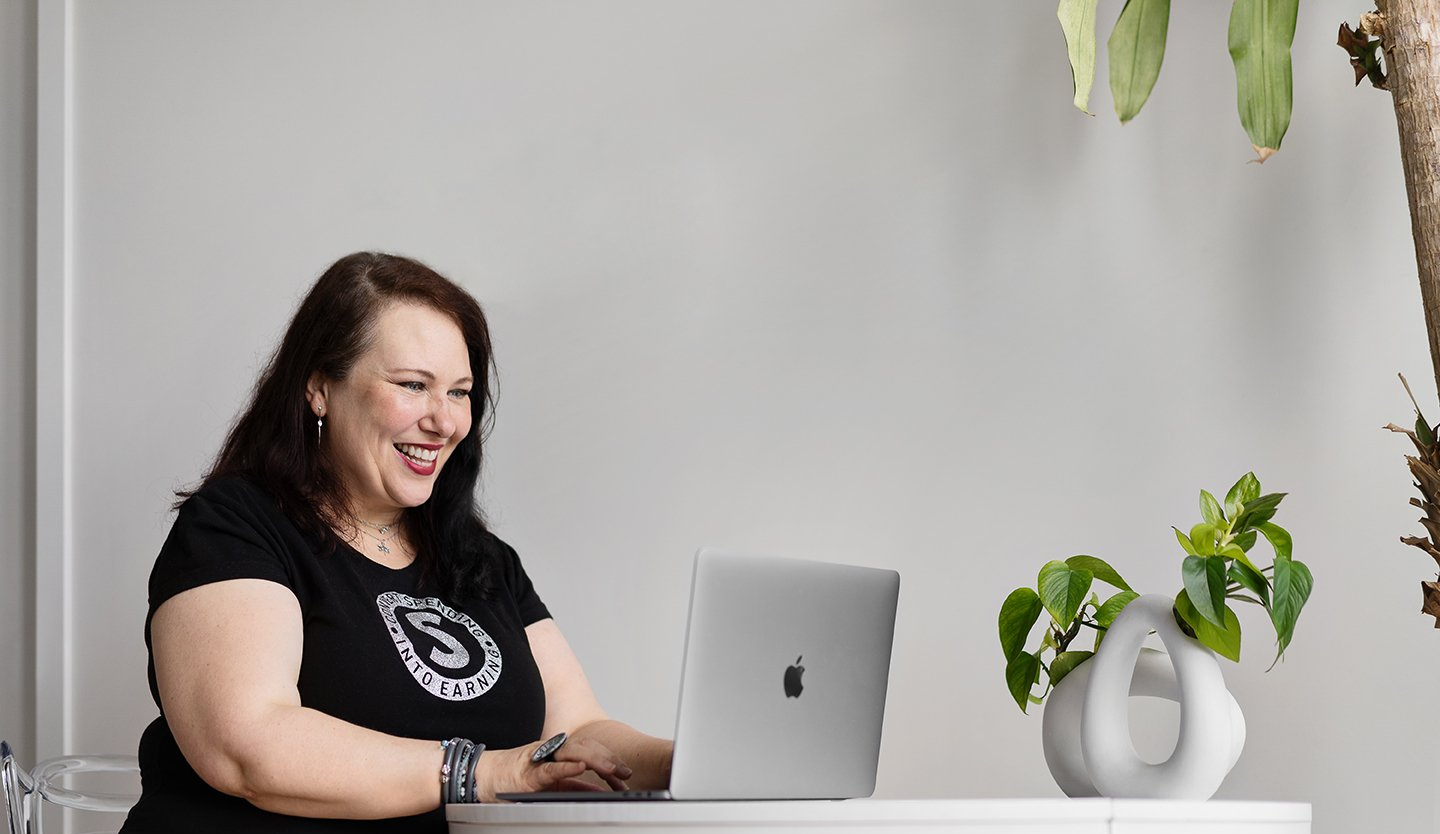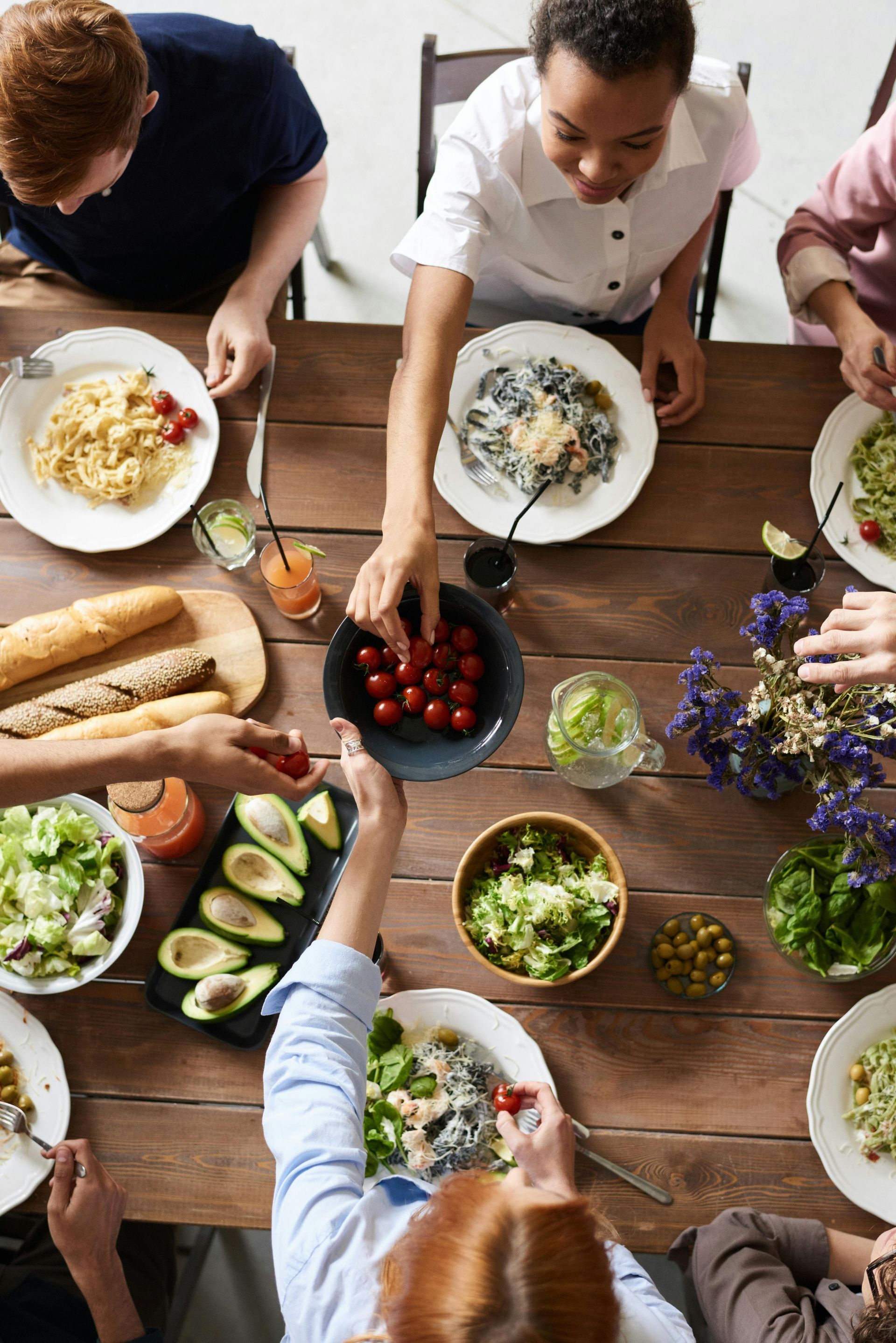HEADFILM - Plate 77 with "The Institute" Writer/Director Hamza Zaman
This week we meet "The Institute" writer and director, Hamza Zaman. Hamza has been passionate about creating stories for stage and screen since he was a teenager. He made that dream a reality when he founded Headless Films. His most recent independent film, "The Institute", a medical thriller was filmed in The Hudson Valley, NY. Hamza shares what it was like to create a movie during a Pandemic as well as his thoughts on the movie industry today. He also shares about his family and how much his wife, Chelsea Roth, has impacted his ability to follow his dreams. www.institutemovie.com Enjoy this episode and want to buy me a cup of coffee? https://www.buymeacoffee.com/pl8story
Share This Episode -
Episode Transcript:
HEADFILM
[00:00:00] Trista, Host: Welcome to this week's episode of Trista's PL8STORY (Plate Story) Podcast. I'm Trista Polo from iwokeupawesome.com and I am your host. Each week, we learn the story behind that vanity plate. You know, the one you saw driving down the road... what did it say? What did it mean? Why did they choose it?
Welcome to Trista's plate story podcast. I'm super excited for today's guest. The plate is HEADFILM. The plate owner is Hamza Zalman from the Catskills originally from the New York city area and relocated up during COVID welcome. Thanks for being with me today.
[00:00:40] Hamza Zaman: Thanks for having me. I appreciate it.
[00:00:42] Trista, Host: Yeah, I'm excited. So tell me first about your plate. Why did you choose HEADFILM?
[00:00:48] Hamza Zaman: Well, my production company and, and film companies called the Headless Films and apparently someone has HEADLESS out there for probably a macabre purpose. I'm not going to judge. And I thought that was the closest portmanteau for like a headless films and it just worked.
I've had some people tease me about it. Certain more salacious concepts that I was unaware of, but you know, I do, I make you know, standard, straightforward films without too much controversy. Okay. That's
[00:01:21] Trista, Host: good. Well, you know, the headless horseman is originally based out of the Westchester area, so it could be that that's why it's taken
yeah. So you make films you have a production company. How long have you done that?
[00:01:38] Hamza Zaman: I guess my first film was over a decade ago. And I've been writing for, you know, since I was a teenager, but in earnest we started making our own films probably in 2015 ish. So it's been about, you know, six, seven years, five, six years.
[00:01:55] Trista, Host: Yeah. That's awesome. I'm curious how you go from. Working on stuff to making it official . What was the hospice for that pivot that had you say I'm I'm doing this?
[00:02:10] Hamza Zaman: Well, like I said, I've been writing stories since I was a teenager, you know, always wanted to do it.
Never really got to sort of convert that I had a couple of abortive attempts and you know, it's just hard without the resource. So I went to college. Went to work, kind of did my whole, you know, traditional life journey. And then I met my current wife and producing partner and she was much more open to the kind of sacrifices and rigors that are needed to be able to take, you know, a good chunk of your time and then devoted to.
Not just writing the story, you know, that you can do pretty much alone, but then developing the production team around it shooting it itself and then doing all the post-production, which is, you know, editing the effects sound and, and then bringing it to market actually.
[00:02:57] Trista, Host: Yeah, it's a lot. It's a lot.
[00:02:59] Hamza Zaman: Traditional film, you, you, you kind of have the story, you cast it, you build a team together, you plan to production, you shoot it, which is usually a very compressed timeframe.
And then in post, you take all the time, you need to, you know, edit it, titling, you know, sound music VFX, you know, all that stuff. And that, depending on how. How much budget you have, how fast your team works and what the requirements are, can take a lot longer than definitely from production. Production is always the shortest time.
And then probably from pre-production as well.
[00:03:34] Trista, Host: Yeah, absolutely. Now I understand that there are kind of these days, too. Banks for film, you've got the super hero, blockbuster, $200 million film, and then the independent film. And it's hard to find stuff in the middle. So you work in more of the independent side, but I'd love to hear your take on that.
[00:03:56] Hamza Zaman: I think it's just, it's, it's two things, right? One. Putting together, the amount, like, you know, the budgets and the requirements for VFX and kind of the brands and all that come along with it. For those bigger movies have just become a lot more expensive, you know, talent name, talent, you know, they can cost millions of dollars for just one cast member.
Union labor, you know, all of these guys are highly skilled artisans, so they get paid like thousands of dollars a day for production, especially and post. So the, the numbers there just add up because there's so many people needed to make, you know, like iron man or, you know, any of these Superman, I have these big superhero movies, so I can see where those budgets explode.
I, I have to say for myself, I'm a little suspicious about it, but that's probably just because I'm in the. So, you know, I'm like, w you know, sometimes I see a movie I'm like, where does $200 million go? Like, I just don't see it for a movie. I absolutely love and adore. I just don't understand where $200 million.
But that's maybe because I'm just the gnat on the tail of the gigantic elephant that is, you know, these big studios, you know what I mean? Just surviving off of the indie the crumbs, if you will, of the world dealing with very, very, very lean budgets, because the other side of the story is film production has also become quite democratized, right?
It used to be 20 years ago, you know making a high quality. Was kind of the rarefied you know, ballywick of a very selected group of people that had access to film that had access to these 35 millimeter lenses, Panavision, you know, all of these like very expensive pieces of equipment. Over the last couple of decades.
We've seen with the advent of, especially like these kinds of really pro and digital cameras, like the red and, you know, Alexa has a couple of good models out. We've seen people if not able to purchase them. At least able to rent them, at least able to be able to work with that digital workflow, right? You don't have only a few film processing company.
You can get your digital image out at 4k 6k and 8K cameras now, and sort of have a little bit of a access into how to process those, how to edit them, how to deal with them yourself. And I think that's made two things happen. One it's made a whole bunch of movies possible, or a bunch of creators are able to do it.
The demands for streaming that all of these platforms are out there. YouTube, you know, even like even your, this story, you know, how much has that been made popular by podcasts? You know it's, it's, the possibilities are almost endless. It's how much work and effort you can put into the hub though, the audience you can find.
And that's just because of the tools have allowed almost everybody to create at the base level, a high quality image, a high quality audio, if you will, right now, recording like this. So there's a lot out there about how do you actually separate that? So to me, it kind of comes down to like the old original tenants, like it has to be a good story.
It has to be, you know, you have to be able to be a good storyteller. You have to be able to, you know, give people something they haven't seen before, because you know, people think that there's nothing new under the sun, you know, that everything's already been done and in a way that's true, you know, but there's always a way to imagine it.
There's always a new angle on it. There's always a new idea that you get, not everything will ever be done because just the combinations are infinite. So I think that combination is kind of separate the middle end because, you know, it's, you have the indie world where I am, which is super high risk. You kind of have like a, I won't even call like a wild west in a way.
You know, you just have a bunch of people that can really just put their, you know, like it's possible for a guy to like, kind of put a mortgage on his house. Or, you know, a second mortgage, you know, get a few hundred grand together and make a movie right now. Does that mean he should put his future at risk?
And do it? I don't know. I can't speak for other people. You know, like for me, I know it's a passion of mine. I don't think my life will be fulfilled if I didn't try to go for it, but I was blessed to meet the partner who make it happen. You know, she, she was supportive the whole way around and I told her last night or two nights ago at our, at a, at a private screening.
I owe my career to her because without her, I would not have had the support to be able to have a family, to be able to have a life and still be able to pursue these dreams.
[00:08:16] Trista, Host: That's beautiful. I love that. And you're talking about a private screening. You have a movie that has just come out. So let's talk about we have to talk about that.
So it's the Institute, it's a medical thriller. I want to know everything
first, give us a synopsis. Yeah. Give us a synopsis. First.
[00:08:39] Hamza Zaman: Young couple has difficulty having children. And so they travel. They get accepted to an exclusive remote facility where a charismatic doctor says he will help them fulfill their dreams.
[00:08:54] Trista, Host: And so you said that these days a story really has to have uniqueness, originality. What would you say you're bringing in that regard to this story?
Did you, you wrote it right? Yeah. You wrote it. And did you direct it as well? I did. And you produced it?
[00:09:10] Hamza Zaman: I'm not entirely, not entirely. My wife was the lead producer. And we have a whole production team you know, other producers, a whole team of executive producers. And you know, this is, it's a feature, so it takes a village.
I mean, this was 50+ people working on it.
[00:09:28] Trista, Host: Awesome. So what is unique and original about this take on a couple, trying to have a family.
[00:09:38] Hamza Zaman: Well, I think. It's going to be a little different than other, maybe films that you've seen that deal with this topic. You know, I've had to be sensitive because it is a very delicate topic. I've had friends, family members that have dealt with this, you know, the idea came from my own, you know initial attempts to start a family, you know, the insecurities that come with it.
And how in the medical field. You're not really, you know, you don't really have a lot of power and this is, you know, my, my family has many positions in it. My sister and my father, they were both physicians and, you know, I understand their side of it, but I also have been through the, I've been through the journey of seeing what happened in the hospital.
Railroaded into things like a C-section, you know, which is more popular and more prevalent than natural births now, which is mind boggling to me, but a whole nother that's a whole nother topic, different podcasts. It's a different podcast. Yeah. These things all kind of inspired me to talk about this, you know, and it's sort of a taboo subject.
So I think it's important to, to delve with things that are important. And maybe we don't discuss quite so much, but you know, at the same time, you know, I, as a man, you know, it's not really my job, you know, I'm an advocate, but I'm not really here to, I can't really speak for the specific detailed you know, journey.
So I just want it to be sensitive to that. But at the same time, you know, I'm it's a film, you know, I want this to be something watchable. So I kind of, I've always been a person that lets my imagination run wild. This is why I love to do. I come up with a story, you know what I mean? It seems interestingly, and I want to tell that story to others and just give them, you know, an hour and a half of escapism.
And hopefully you're surprised by some of the twists and turns some of the places that I take this story. And I think that's what makes it unique is that I kind of mix and match certain expectations that you have. And then hopefully at the end of the story, you've seen something, a Milan that you may have never seen before.
[00:11:46] Trista, Host: Well, it sounds very intriguing. Can you tell me anything about the actors that are starring in it? The cast, or?
[00:11:54] Hamza Zaman: Sure. Yeah. You know, it's an indie and our lead actress, Victorya Brandart, she was somebody that I had worked with before we were familiar with each other and I kind of helped her. We worked with each other to bring the production, you know, to the.
And so she had been there since basically day one, day two, at least. And so it was a natural choice, you know, she read for the part and she really had the passion for it and still is helping, you know, promote. She was a great, you know, some of the reviews said she was a great choice. She did a wonderful job.
She was familiar with my initial actor. He dropped out. Unfortunately he had he was also kind of a family friend. He's a. A big star on, on a, on Broadway, but he had some scheduling difficulties and then with COVID and our budget requirements and everything getting sort of condensed you know, she brought a new actor, Ignacyo Matynia and the fact that they were familiar with each other, when they read, you know, it really helped work things out because they, you know, A story about a husband and wife.
So the intimacy there, the, the, the background, the heritage of their relationship transformed, you know, informed that, that I love that informed the film. So it worked out well, they did a good job, and they had that connection, that chemistry that you can kind of see on screen.
[00:13:15] Trista, Host: And it sounds like in an indie film environment, you really went into your own network.
To cast the film. Is that typical? Did you also hold auditions? Like what's yeah, yeah,
[00:13:28] Hamza Zaman: yeah. I mean our main actor or the doctor himself, there's a couple of doctors, but the main doctor Mark Lobene, he was somebody who I had worked with as well. He, I had cast him in a play. I had director, you know, I'm also a playwright and director and in that world and he played a very different character, but I always saw him as.
And, you know be able to, you know, at least look the part. So then we had him read for the audition for actually to be able to pull off some of the, you know, the range that the doctor needed. And I think he did it, you know, and he was definitely came across the way he needed to come across for the story, the other, the ensemble, there's other couples at The Institute, you know, that we meet some of them, I went to my network, people I had cast before, but we had a few kind of public castings.
It was. But given COVID that they're zoom castings, but I think it worked out okay.
[00:14:21] Trista, Host: Yeah. That must have been quite a process. Did you use any of the local casting agencies? We actually have a button. Of local casting agencies right here in the Hudson valley. Is this where you filmed it?
[00:14:36] Hamza Zaman: I filmed it. I filmed it. The majority of it, the vast majority was in the Hudson valley and the Catskills Hudson valley film commission was instrumental in getting us resources for like local ADs and transportation and even some locations and just talent sound.
You know, there's a whole bunch of people that need to be. The day of, and a little bit before to, to get this thing to work casting, I did not really put out my net here in the Hudson valley. You know, maybe looking back I should have, but just, you know, I kind of had that history with New York and casting in the city and knowing the talent down there and you know, just the pool is so huge and because w we didn't have a whole lot of.
Extra as we needed or just kinda, you know it was all very specific, very tight, you know cast. So I went mostly with the New York area. Although Victorya Brandart came in from LA.
[00:15:33] Trista, Host: Oh, wow. Okay, great. Now we have in this area, it's being torn down because it's being built into like a shopping center in condos and stuff, but it's an old mental institutions supposed to be haunted, very, you know, weird energy over there.
Did you look into places like that here in the Hudson valley since it's a medical thriller or how did you choose your location?
[00:15:59] Hamza Zaman: Yeah, no, I think I'm familiar with the one you're talking about. There's one that's near Middletown, New York, and then there's a few abandoned facilities I've seen as well.
I had my, my location, people look into them. I think they're good locations, but they weren't available as like films locations.
But we were able to get tons of great places in the Hudson valley. I mean, we, we found an old summer camp that, you know, unfortunately they weren't doing anything because of COVID. So we were able to have a little bubble and have our cast and crew all live together for, you know, the few weeks it was really very collegial.
You know, we have a game room, people were playing pool, having campfires, you know, It was pretty cool. I mean, we're working hard working
[00:16:39] Trista, Host: like drama camp for a movie.
[00:16:43] Hamza Zaman: Exactly. I would love it. It can do that again. You know, that's amazing.
[00:16:48] Trista, Host: Well, being in the Hudson valley, having actor friends in the Hudson valley, I'll tell you there are some amazing talent and some wonderful casting people here in the area.
And there's a lot more stuff being filmed here. I love that you're doing stuff up here and that you've relocated up here.
What else can you tell us? About the film
[00:17:06] Hamza Zaman: It's out now. It's in it's not, yeah, Amazon apple TV, Google play. All the streaming sites will have it.
YouTube. I'm sure. And you can also see on spectrum your local cable providers, your local satellite providers, it'll be available on their, on their networks It's The Institute by Hamza Zaman, you know, just check it out. We also would appreciate if you guys could give us some good reviews, you know, on rotten tomatoes and the like, and.
You know, it's a small film, so small films need big support. So, you know, anything you can do to help spread the word or help us with our social media, you know, you can check out all those links on https://institutemovie.com and you know, it should route you to more and more areas where you could see it. We can, you know, sign up for news on the social side.
[00:17:52] Trista, Host: That's awesome.
Yeah, this is all very fascinating.
[00:17:55] Hamza Zaman: I'm just a, a small creator, you know, trying to live my dream by, you know,
[00:18:02] Trista, Host: I love that. And I really admire and honor you for doing that because you did take a risk. Like you went out on the skinny branches and you mentioned that it was really because your wife supported that dream.
She said, go for it, babe. I don't know if she calls you babe. Right? That's just what's happening in my head. Go for it. So let's talk about her a little bit. Her name is Chelsea and she's a producer and she's in the film world as well. What do you love best about.
[00:18:32] Hamza Zaman: Oh my God. I mean, I don't want to, you know,
it's just, there's really nothing bad I could say about her. You know, she's a wonderful person. We joke about like, you know, I have, we have our own obviously relationship has their own internal language. You know what I joke about how I've been searching for her for many lifetimes. And we finally got to meet and fulfill that, you know, long, long journey.
She's got a great. Like a wonderful heart, you know, super, super soft the highest levels of integrity, you know, which made her kind of an ill fit for what I, we, we started getting her into this film production world, but somehow we were able to muddle along, you know, swimming with people in their egos and their lies.
But you know, it's been, it's been a journey that's been able to. More rewarding because we're together. Right. We can kind of share these things. She actually comes more from the Broadway world. She went to college for design, and then she worked on a whole host of Broadway shows, you know, backstage designing, you know, wigs and makeup and all that.
And you know, she does costume design. She's an award winning costume designer. She won five. Yeah. And that's what she really wants to do. She really loved to do costume design. And unfortunately because of our budget and our requirements, she got pushed more into the production role, but she's been doing great with it.
And, you know, because of her experience with, you know, we, we kind of did this together. The first play I wrote, you know, we were like, okay, she's the one that told me to submit it. We won that, you know, a little contest. And from there it's just been like, you know, decisions together, which one of our stories does she like, do we like, and we kind of partner up.
Get the team together, you know, put it on and it's been very natural. It's always been like a part of our relationship, frankly. I don't know if it will ever change because we do have that love for art. We do have that love for story. So. Even though now we have kids and we're sort of, you know, more, more and more in a adulting mode.
I don't think it really was too big of a tangent. Right? So she, we met at a writer's group, actually. We're both working on, I was working on a screenplay. She was working on a play. So we always had that connection on art. On what we love about it. I mean, our tastes are different. She she'll probably say she has tastes, whereas I'm more open to, you know, pretty much anything with the, within the genre world I'll watch.
But you know, they're just, there's really, I couldn't, I can go on. So there's really nothing about her that I would change. She's a, she's a wonderful human being that's, you know, honestly sacrificed. So. For us, for our family, to be able to let us make these films, to be able to like raise a family. I mean, things she does are an order of magnitude above what I contribute to, you know, our lifestyle.
[00:21:18] Trista, Host: Oh, that's amazing. I love hearing you talk about her. You're just so complimentary, so much acknowledgement and love and your words and behind them. It's beautiful.
Yeah. And you met at a writer's group.
[00:21:29] Hamza Zaman: Huh. Yeah, this was in Manhattan. I guess sort of semi random, but you know, it was, I don't know. I don't want to say anything ill about writers either since I am one, but I was at a writer.
I'm a writer, I'm a writer I'm guilty as charged. So, but you know, the groups are not usually filled with. Actually say this beautiful, attractive, you know, young women coming in to, to work on their stories. I'm not saying it doesn't happen, but in my case, you know, I was just working on my screenplay, kind of like minding my own business.
And then she kind of came in and sat down
[00:22:09] Trista, Host: that way. Right. Cause then you don't get distracted. You're just there to work. Right.
[00:22:13] Hamza Zaman: Did start to get distracted though.
I'd never been distracted before, but at this case you know, I got distracted and we just the format is you kind of, everybody just stops and quietly writes together and then they kind of can discuss their work. And so we discussed our work a little and, you know, struck up a friendship from there.
And apparently she thought I was somebody that she already knew and disliked. So this was a funny thing. This is, so she thought I looked like somebody that she already knew, but was not a very nice guy. So when I, when we discussed, you know, when we talked about her stories, she realized I was not that.
Which was obviously to my benefit. Absolutely. And yeah, the rest of, you know, it's just a friendship interests, you know, discussing the writing. And then we kind of had like the one coffee date and which lasted like, you know, six hours and our real date and kind of a real natural progression from there until.
Engagement marriage and now 2 kids, two
[00:23:17] Trista, Host: kids, young ones to write little kids. Oh,
[00:23:21] Hamza Zaman: cool. COVID kids. I guess Cyrus was born about a month and a half before COVID happened. And then Victor was just this December.
[00:23:29] Trista, Host: Wow. Congratulations. So are you ever going to write that story? The story of your meet, cute and your life.
[00:23:41] Hamza Zaman: I never even thought about it. That's funny. You said that I, you know, it just seems pretty straightforward. You know, I th there's nothing that crazy and unique, but I will bring in those elements into all my other work, you know, a lot of times screenplay, right. I named the protagonist after her in the beginning, just to kind of flesh out a character or, you know, female character, I'll kind of give names of my friend, just piece it together, make them a little richer from, from day one.
So I, you know, I bring our story permeates almost every story I have actually, even The Institute right. It's based on a young couple that can't conceive. So it's, I don't, I wouldn't call it semi-autobiographical we don't deserve that. I mean, other people have these real issues and, and, you know, they're the ones who, who you know, we should kind of be concerned with and, and support them on their journeys.
But some of the dialogue, some of the, you know, situations, they all kind of stem from our relationship.
[00:24:37] Trista, Host: Absolutely. So I have to ask you, you know, I, I said before, I love that you're following your passion and your dream and.
There a lot of doubt. There's a lot of opportunity to be judged. You're putting out your own personal creativity. You're asking people to back your work and, you know, act in your story. How has self-worth played a role in your journey and your life?
[00:25:01] Hamza Zaman: Self-worth well definitely I will give one piece of advice, which is if you have any, you know, be prepared for your self worth to be negatively impacted, if you put out a movie or put out any work, you know, there's always going to be people that speak negatively of it and
[00:25:16] Trista, Host: nitpick everyone.
Okay. I don't know how good it is. There's always a hater or a troll, you know? Yeah,
[00:25:20] Hamza Zaman: exactly. So, you know, and just be prepared for that and, and. Try to stay focused on the positives. Like, you know, you're following your dream, your you're, you, you made a project, you gave people work. You, you employed people during COVID.
You know, you created some art together with people that you love. You know, there are people that love this, you know, there's going to be people that love it. There's going to be people that don't like it, but focus on the fact that you are doing. What you set out to do and that you can accomplish what you want to do.
If you just take the time and keep, keep pushing forward and just, you know, find the right team, find the right partner to be for my, in my case, it's, you know, find the support structure around you that allow you to thrive. So that, that's kind of how I would consider, like how self-worth played a part in it.
You know, I it's, it's a complicated issue, right? Because.
You almost have to have an overly inflated sense of self-worth to think that anybody cares about what your story is or a story that you write. Like, why should anybody care? Yeah. You have an idea. You, you know, you love this, but so what, you know, there's a war going on in Ukraine. There's people dying.
There's people, you know, don't have enough to eat and you're taking, you know, thousand days of your life. You know, it took three years for us to bring this to market. So. Where are your priorities at? And I, I feel those in inside as well. I always, I asked myself these questions, you know, like, Hey, you know, is this worth it?
Is this art like, you know, really contributing to society at the level that it should, and that you really can do. And then it's, is it a valid use of resources? And, you know, I think that's an open question and everybody has to answer that for themselves. I mean, I don't need to like publicize any of my charity or, you know, donations and stuff.
But for me, this was what I had wanted to do since I was a teenager. And if not actually started doing when I was a teenager, but really wanted to do, since I was a child, the first Saturday morning cartoons that I watched, I was like, this is cool, but I want this happen. Why didn't this happen? This is what I would have done.
This is where it started for me. I'm like, you know what, when I'm going to get older. I'm going to make my own,
[00:27:29] Trista, Host: I'm going to fix it, make it better.
[00:27:33] Hamza Zaman: I'm going to make it better. I'm going to make it more to, you know, my tastes. And and that's really all I'm doing is I'm trying to say, Hey, there may be people out there that are not being kind of served or may not have their, their tastes titillated if you will.
So this is something that I think would be cool. This is something that I like. I think I want you to enjoy. No, this is supposed to bring you actually enjoyment and joy and positive. And even though I talk, tackle some dark subjects and have some, you know, twists and turns in there, the final takeaway, I want you to have some positive, you know, some endorphins and add something kind of helpful to your life, you know, which is, you know, a positive experience.
So yeah, I'm not changing the world. But I do want to maybe give a few of us. A few hours.
[00:28:21] Trista, Host: Sure. Well, there's a place for it for sure. And we need to support it. We need to support the arts because they aren't an afterthought. They aren't just something to do to pass the time. And I, and I'm thinking about, you're talking about dark subjects.
I'm thinking about the first podcast that really put podcasts on the map was true crime. It was called cereal and it was about this guy. Prison for killing his girlfriend. And like, did he do it, did he not? And now that serial has, did it get him released? Oh, I didn't know
[00:28:58] Hamza Zaman: the end. I don't know if I think there was, if it's the same podcast I'm thinking of, there was a lot of, you know, attention that came to her.
Maybe there's,
[00:29:07] Trista, Host: I don't know if he ever got released, but definitely a lot of attention, but that's really what put, made, I believe what made podcasts. Mainstream, because this was a for Joe Rogan and, and all of that. And so true crime, those darker subject. They're very popular. They're very sought after. I think it allows us to look at the shadow side of life.
And for me, the reason I don't like is I don't like to be scared. I'm scared enough in my own life. And I don't like to be upset. I'm upset with in my own life. Like I don't need to be entertained with the stuff that I deal with and because I'm all about being positive and really managing my mindset. And it's just a personal choice, but, but it's very popular and you're right.
Like those darker subjects, that's what people want, give the people what they want. And you're doing that.
[00:30:03] Hamza Zaman: I think I try to give a little bit of positivity in there because you know, there's just, to me, there's no such thing as like pure white, black, you know, there's always going to be a little. A little mix in there.
So we'll see, we'll see. I totally respect your, your desire to kind of control your information space and to keep your life, you know, oriented the way you want it to go. I just have been one of these people, my whole life, where I couldn't do that. Like to me, I really, I need to know what's going on in those areas because that's what fulfills my life.
That's what gives me the. The confidence to understand the field that I have a true understanding of the meaning of my life. Right? You need to, I need to know what's happening in, in the bunker. And you see, you know, in Kiev where, you know, my friend is right now hiding from these Russian forces. Wow. You know, as well as, you know, be able to enjoy like the sublime love of my wife, you know, I need to, I have to have both sides of it.
And unfortunately
in
[00:31:01] Trista, Host: the gray. No black and white. Yeah. You live in the grays. Yeah, it's good. It's a, it's a very good skill. And it's, it's makes you a better storyteller. I'm sure as well. Yeah, absolutely.
So we can see your movie on all the streaming services and I'm wishing you huge success with. So much success that it ends up in the four movie theaters that are still open after COVID. Oh my goodness. It's quite a world that we're in. It's quite a world.
I always like to turn the tables before we end and see if you have a question you'd like to ask me. So do you have a question for me today?
[00:31:42] Hamza Zaman: Sure. Yeah. Trista. I know you had said that, you know, you deal with, you know, empowerment and positivity kind of. But surround yourself with this world. So I don't need you to get into like, you know, what bad thing happened that, you know, made you kind of focus on that or any other bad stuff that, cause we all have that, right?
Everybody deals with these, these bad issues and you know, and I really am very, very appreciative that you would share and build a platform for others to share their stories and, and try to uplift them by, by focusing on the positive. So I want to start by just thanking you. But I wanted to know if there was a particular incident or anything that you probably already dealt with this in your other podcast.
But I would just curious if there's anything specific you wanted to talk about on what inspired you to do this and, and where that came from?
[00:32:28] Trista, Host: Well, so my brand for my coaching and my business is called, I woke up awesome. And where that came from. I really, I've done a lot of work on myself over my life.
I'm very transformational. I like taking courses and reading books and watching videos that expand me to be able to transform myself to be the best possible version. I can be the highest self version I can be walking around in this humanness that we all. And in that journey, I realized that I've learned a lot, that I wanted to be able to give back and share .
And I could actually, you know, pay that. And then all of a sudden that, you know, voice in your head, that's living there speaking to you as basically an ongoing, never ending monologue. It said, oh, well you better get a haircut first. Oh, you should. You should lose a few pounds. Well, you're not wearing makeup.
Don't do it today. Oh, you should buy a new wardrobe. Like there were all these reasons to wait. And then one morning I woke. And I said, I had this epiphany that came from somewhere that you are perfect just as you are. There's nothing to change about you. If you go onto a video camera and start recording yourself with your hair, terrible, your makeup under your eyes, wearing your pajamas.
This was before COVID right. When everybody's doing that now, like it's sense as a trendsetter baby. If you go on camera just as you are right out of bed and share powerful words. Wisdom that helped people. That's still amazing and you don't need to look perfect and dress perfectly. And all of those things in order to offer something of value, because just as you are right now, you are perfect.
I gave myself this little pep talk from this, this epiphany, and then I realized, well, that's true of all of us. . Like we're so we're all perfect. Hamza like you are perfect just as you are. You have nothing to change about you. And I thought, what if that was the message? That there is to share because my self worth has definitely grown over the years.
That's why I always ask the question. How has self-worth played a role in your life? Cause it's definitely played a role in mine and I love hearing other perspectives about it, but I used to think I'm too fat, too ugly, too dumb, not funny enough. Like, you know, pick a reason why I'm terrible, that I shouldn't be sharing my gifts.
Like you are sharing your. I love acting. I would never be an actor. I wouldn't wanna put up there with the ritual, with the rejection, you know, I love writing, but I could never, you know, like all of those, those self-doubt fans. And so that's kind of where it all stemmed from, because I really believe that you can't be more successful than your self-worth.
So. You can't be loved more than you love yourself. We put the limits on ourselves. So it's really about taking the limits away layer by layer. It's not a flip switch kind of situation, right. There's always another layer to do. So that's really where it comes from an of course, as you said, plenty of personal trauma and drama that I've worked through in my life, like we all have I'm no, no special person.
When it comes to that, we all deal with our own journey. But yeah, so that's, I would say where it all kind of stems from. Does that answer your question? Yeah,
[00:36:09] Hamza Zaman: that's wonderful. I mean, we all deal with the trauma, but you know, not as many of us, not enough of us do something about it that can help others.
You know, I went to, so during COVID I got my EMT certification, I went to some training last night, where for the first time, you know, we did this kind of suicide assistance. QPR training. And I had just wished to God that somebody had shown me this training like a decade ago, because, you know, we don't need to get into it, but, you know, there's people that I've met, you know, like friends of mine and, you know, I didn't have the tools to really help them, you know, I didn't really have the tools to help.
So it's amazing that one hour and a half session would, you could be able to give them. The tools that you could use to save a life. I mean, I hate to overdramatize it, but it's true. So I think you building a platform where you bring these people in and, you know, get them to potentially share some information that could be very helpful to people.
It's, it's very vital and, and not many people take that next step to say, Hey, I'm not going to just let this transformation. The self-transformation journey helped me. I'm going to do something that could potentially allow others to help them.
[00:37:21] Trista, Host: Yeah. So QPR, it's a suicide prevention tool. I've never heard of this before.
Give me a brief synopsis.
[00:37:31] Hamza Zaman: Basically it is, I don't want to really, I'm no expert.
Yeah. So there's CPR, which is what we know we're, we're trained with the, you know, provide common, you know, cardiopulmonary resuscitation help, like a person that's having a cardiac issue or a respiratory issue. So QPR is kind of based around the same, which is three tenants called question persuade and refer.
And you basically just give people the basic things to say, and frankly, not to say. And how, if you suspect somebody is contemplating suicide. You can question them about it and persuade them and all you really th the, the fact that the core of it is based on hope. So a lot of people, they feel that they have no other choice.
You know, suicide is not an option that people take because they have any other way. They're, they're just like us, that people, that their life has pushed them into. And the only way they think they can escape these problems is to suicide. So all you do is you try to persuade them, give them a little bit of hope, Ms.
Top. This is where I really dark best is give them a little bit of hope that there is another option and that can sometimes be enough. And then, you know, it's just the other is just to refer them to the professional. There's a whole, you know, group of advocacy organizations and unfortunately in the Sullivan county area, there's not enough of them.
You know, we have one. Suicide rates in the, in the state. And it's, it's very unfortunate. And this, this was based primarily around first responders. That's why you know, we, we took the training, but I think it's very helpful to everybody in this world to have known about this and how to deal with this. If you can just build yourself up take some time, to hear them out and persuade them that there's, there's hope that there's options other than suicide, and then refer them to an organization that deals with this, you know, like a professional organization, that could be what it takes to save.
[00:39:27] Trista, Host: Wow. And I appreciate you mentioning it. I've not heard of this process. I get that it's for first responders, but like you said, it sounds like it's something just like you could learn CPR, you know, and be a citizen. You know, I think people really want to, you say hope is a piece of it. I absolutely agree.
And I think, and this is my opinion, but people just really want to be heard. They want to feel connection with others. And so I think that's where the hope comes from, from the process you're talking about. Not really knowing what it is, but. Yeah, that's, that's a great resource to share. You know, people are always sharing the suicide prevention, hotline stuff on Facebook and all of that, you know, it's a thing that it's hard to know sometimes, you know, people like the famous people like Anthony Bordain, Robin Williams.
Oh, well, nobody realized how they were feeling and that it was that bad for them. And, you know, we we've gotten. Yeah. So to know those signs we've gotten so isolated, I think mental health issues are definitely off the charts because of COVID and isolation. And, you know, I like being home. I enjoy being home.
I I'm going to just be really honest and say, this has been not bad, but good for my mental health, but I have friends. They need to be around human people. You know, in order to really feel connected to the world. And it's been really tough for them and you're right. It got a little dark, but that's okay.
That's life. And I do appreciate you sharing that resource. So I'm so happy to have had you here today, Hamza. It has been a really fun and educational
[00:41:03] Hamza Zaman: conversation. This has been really wonderful. Yeah,
[00:41:09] Trista, Host: me too. So everybody go see the film, The Institute streaming, wherever you watch stuff, give it reviews, rave reviews, share it on social media. Let's help this independent film. Get the huge love and support that it deserves.
[00:41:26] Hamza Zaman: Thank you so
[00:41:26] Trista, Host: much. Yeah, absolutely. All right. Have a great day.
[00:41:31] Hamza Zaman: You too. Take care.
[00:41:32] Trista, Host: Thanks for listening. Please subscribe to Trista's plate story podcast, share it, or leave a review. If you would like to nominate a license plate to be featured in a future episode or you have an interesting plate story news item to share with me, leave us a comment or visit plate story.com. That's P L number 8. story.com and give me all the details.
This is Trista polo wishing you well on the road to your next adventure.
I Woke Up Awesome Blog

